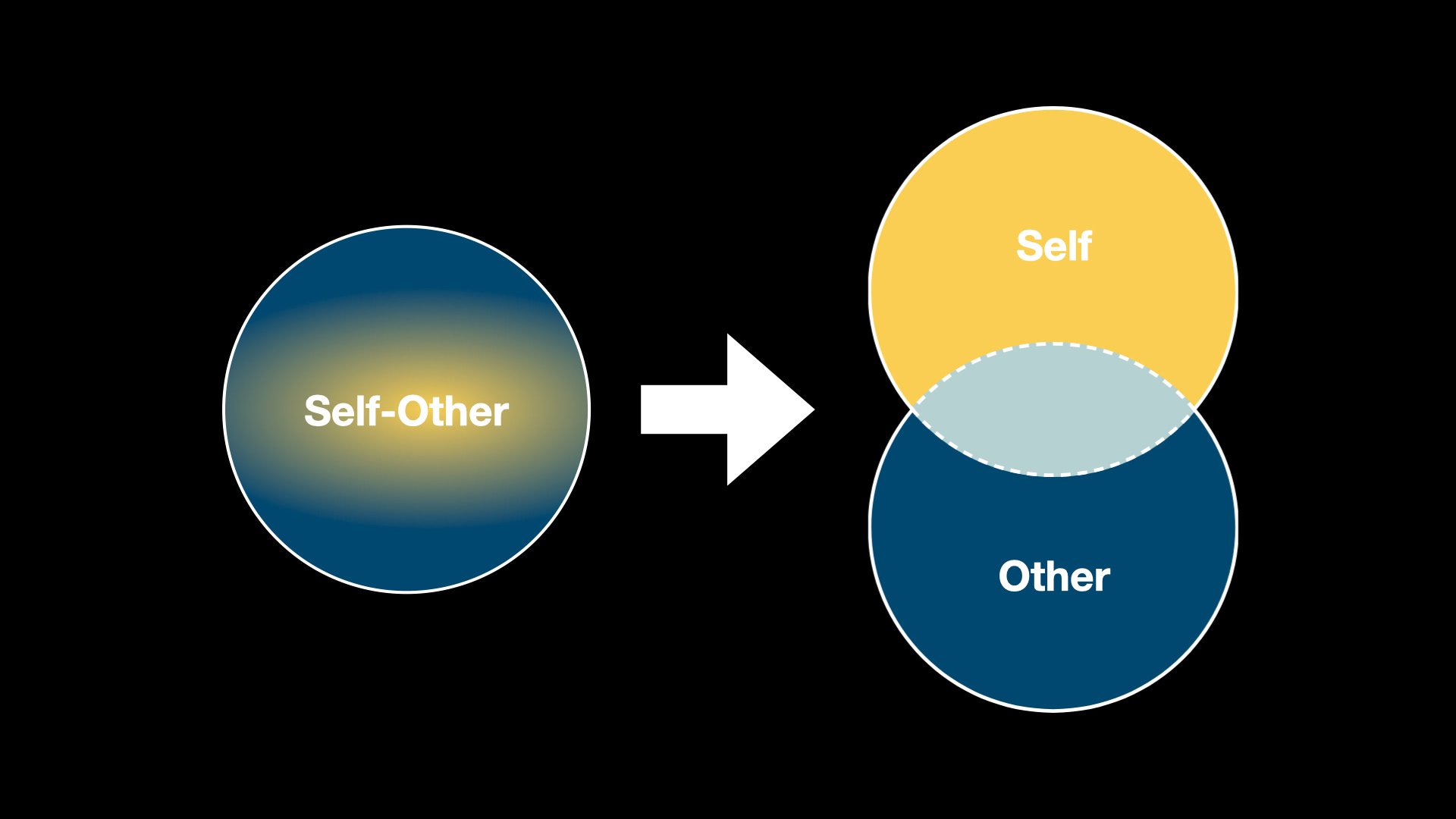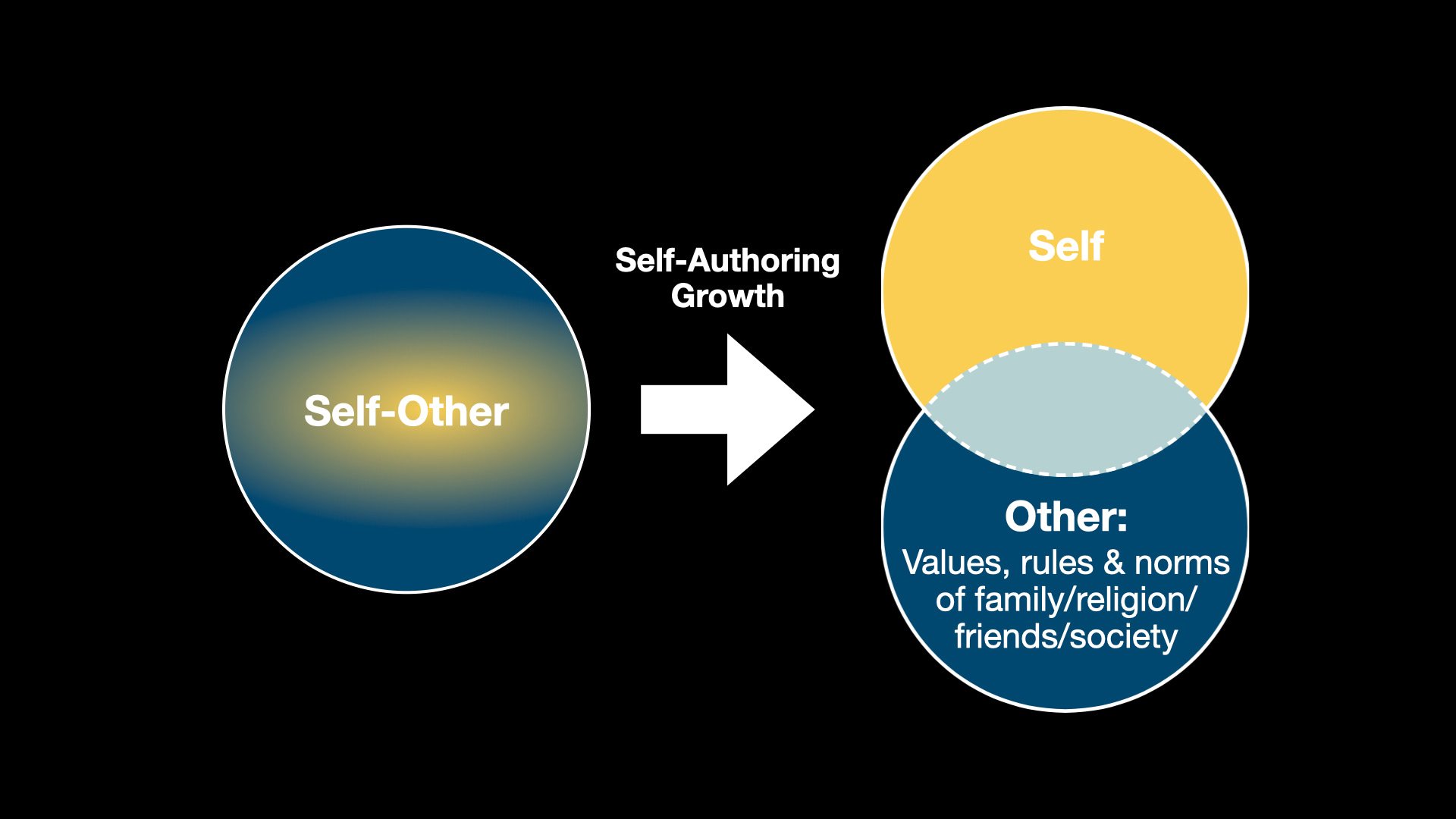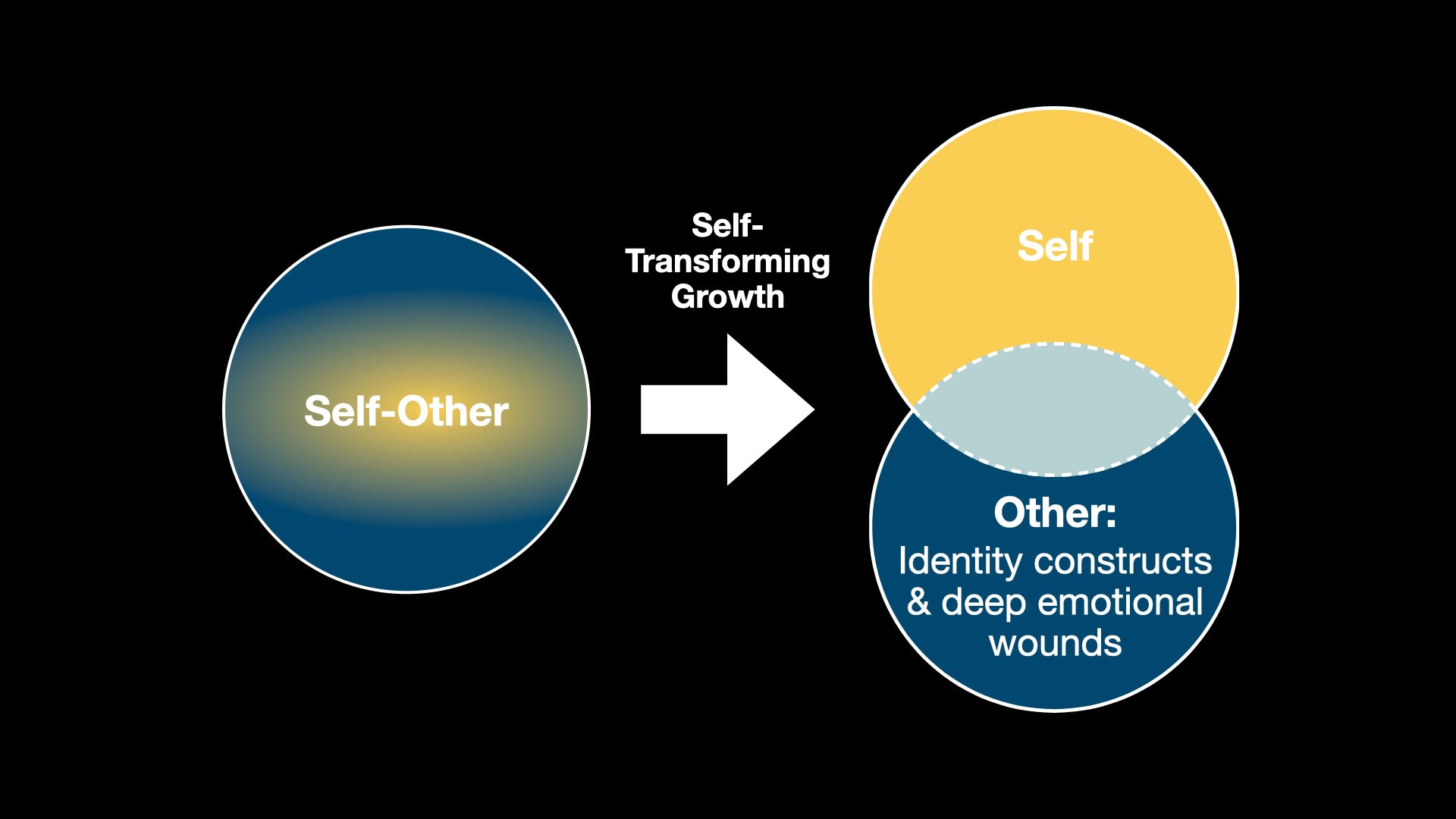The Secret to All Deep Inner Work
If you want to understand another person in some fundamental way you must know where the person is in his or her evolution . . . the way in which the person is settling the issue of what is 'self' and what is 'other.'
- Robert Kegan
I love 4-7-8 breathing. I do it every day and, if I may be so bold, you should too. It calms the nervous system, allows our inner parts to feel safe, and helps us come back to center.
I love walking. Studies clearly show it has physical, mental, and emotional benefits. Everyone should do it. Throw in dancing, singing, and stretching as well. These are all amazing practices that help us maintain health at all levels.
But they’re not deep inner work.
I’ve been trying to put my finger on what separates these wonderful mental and emotional health practices from deep inner work. A couple weeks ago, at an amazing retreat in Sedona, led by the inimitable Aubrey Marcus and his Fit For Service crew, I realized the key mechanism that distinguishes deep inner work from everything else: the transformation of what was our unquestioned sense of self into “other” that we can separate from, see, reflect on, and relate with.
Each of the practices we engaged in, from death meditations and shame workshops and breakout groups to intensely profound breathwork and authentic relating, we were invited to bring out aspects of our unquestioned sense of self and separate from them, reflect on them, and relate with them.
This is the process of making what was “self” into “other.” The developmental psychologist, Robert Kegan wrote about this throughout his career at Harvard. From birth to death, any psychological growth comes when a human begins to separate from something that was fused with their sense of self (like the bond with mom) and have it as an object for reflection and consideration.
We move from childhood and adolescence into adulthood when we separate from the values, rules, and norms of our social world (family, religion, friends, society) and take them as objects of reflection and consideration. We realize that these values, rules, and norms are not me, not my “self.” Rather they can be taken or rejected based on larger concerns.
Kegan refers to this stage of psychological development as “self-authoring” growth.
Of course many of us don’t make it this far and are stuck fused with the values, rules, and norms of the social world we grew up with. But if we do make it to self-authoring growth, it’s because we did the deep inner work of taking what was our unquestioned sense of self and bringing it out for reflection and consideration. This begins the quest to construct our own self-identity not based on our childhood social worlds.
This is a massive undertaking and it causes as many problems as it solves. But if we make it through the self-authoring stage of growth, there’s another level of self-other separation that awaits.
In this next stage, we begin to take our identity constructs as “other” to be reflected upon and considered. The political, cultural, ethical systems that we used to define who we are begin to be seen as fluid, unstable, and incomplete. And this is not because they’re the wrong systems, but because no system (idea, construct, way of life) can be fully stable and complete.
And when we start to take our very identity constructs as objects for reflection, we start to see deep unconscious aspects of our “self” that we hadn’t noticed before. Old childhood and adolescent emotional wounds come back up fresh because we can now “see” them. And we can see them because they are no longer fused with our sense of self.
And so we enter the self-transforming stage of psychological growth, where learn how to become comfortable with a fluid, dynamic, and expansive sense of self.
I’m imagining many readers saying, “Um, yeah, can I just go back to the 4-7-8 breathing? I’m not so sure about a fluid, dynamic sense of self.”
To that, I’ll say that there are unsolvable problems with each stage of psychological growth. Staying at any particular stage might feel comfortable but the problems you face in your life won’t change until you do the deep inner work of turning your unquestioned sense of self into an object for reflection and consideration.
This is what I help people do as an emotional health coach, and it’s what all transformative therapies and practices do.


